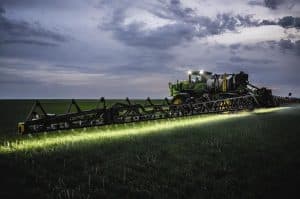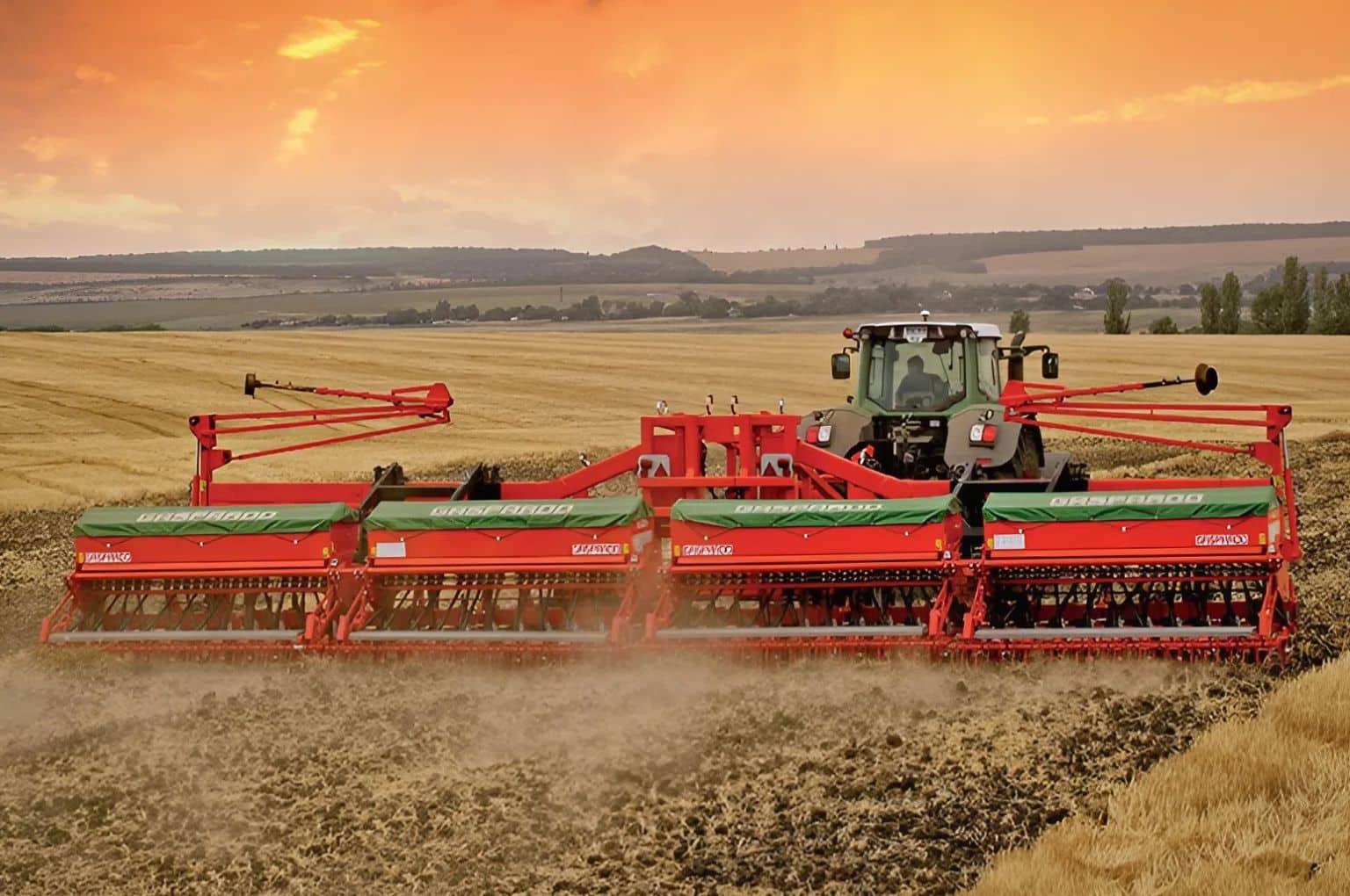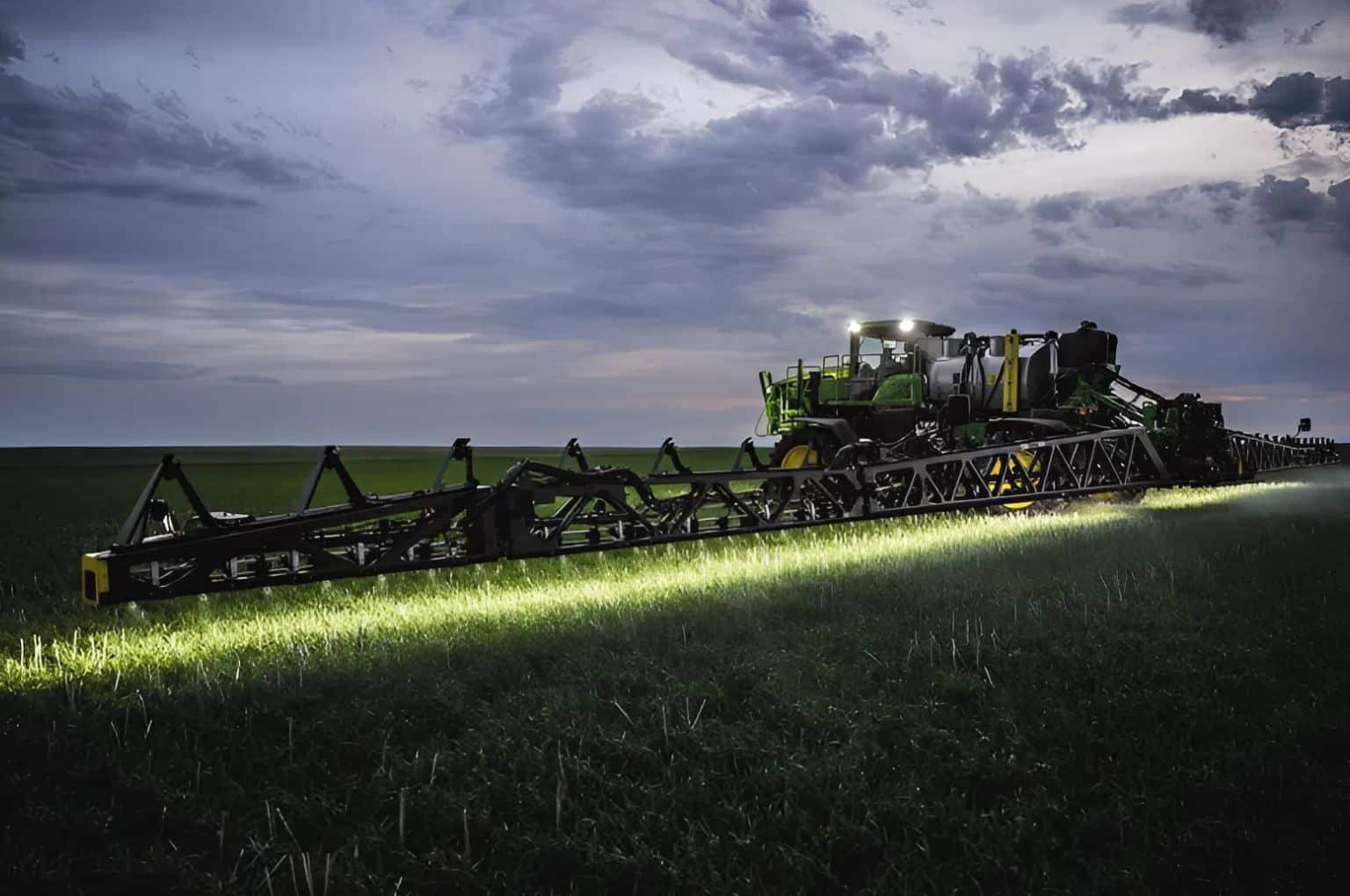The new Case IH Magnum AFS Connect tractor has been rigorously field tested in South Africa with pleasing results | The Magnum AFS Connect 380 CVT model used in the South African field tests has performed approximately 600 hours of testing so far | The AFS Connect connectivity features have been the main focus of the field tests
South African farmers looking forward to the arrival of Case IH’s new Magnum AFS Connect tractor can take comfort in the knowledge that the machine has performed successfully under local conditions in a series of in-field trials.
The Magnum AFS Connect is the seventh generation of Case IH’s Magnum series tractors and incorporates technology from the brand’s Autonomous Concept Vehicle.
AFS (Advanced Farming Systems) is the name of Case IH’s precision farming range. AFS Connect denotes the brand’s telematics solution, which is now an integral part of the Magnum AFS Connect tractor.
Wireless connectivity allows for instant communication and two-way data transfer between the machine and its manager, with AFS Connect technology making it possible for remote display viewing of the tractor’s AFS Pro 1200 operating screen by farm owners, managers and, with permission, the dealer supporting their equipment, providing exactly the same screen view the operator is seeing in the cab.
600 hours of testing
South African testing of the Magnum AFS Connect 380 CVT began in September 2020 in Bergville Kwa Zulu Natal.
Since it arrived in South Africa, the Magnum AFS Connect 380 CVT tractor has completed approximately 600 hours of rigorous testing.
The Bergville area is known for no-till, high intensity farming due to irrigation, and farmers in the area typically produce two crops per year on rotation, as well as incorporating cover crops in their farming operations.
The machine was tested at a large maize, soybeans, dry beans and wheat operation.
The new Magnum AFS Connect boasts new features such as a new full-length door, cab interior, instrumentation, Multicontroller armrest for enhanced operating ease and new brake-assisted steering, all of which were put to the test by in-field operators, however the machine’s precision farming and connectivity features were the main focus of the trials.
Jaco Prinsloo is Case IH’s Product Marketing Manager for Crop Production and is responsible for overseeing and supporting the South African product testing program.
“With the Magnum AFS Connect we tested all the latest functionality the machine offers,” he said.
“First, we tested it on the new Case IH/CNH industrial RTK network. This enables customers to work in the most accurate way possible, giving them around 2cm repeatable accuracy.

“We also tested the machine on the new AFS 1 and AFS 2 correction signals. With this we could see the accuracy on the ground and how the machine performed, and also if this satisfied the customer expectations.
“The AFS Connect machines offer customers the ability to connect to the machine remotely,” Mr Prinsloo said. “We tested this as well and shared information back and forth from the machine to the AFS Connect Farm Portal.
“We also connected remotely to the machine via our Remote Service Tool (RST) to run diagnostics and do software updates and helped the operator by connecting via a remote display.”
Multiple platforms
One of the groundbreaking features of AFS Connect Farm is the ability for it to be linked with other cloud based FMIS (Farm Management Information Systems) such as Trimble and FarmersEdgeTM FarmCommand platforms. Sharing data between multiple platforms will allow customers to access all their data from one central location. The DataConnect partnership even allows customers with mixed fleets to visualize their supported John Deere and Claas machines on the AFS Connect Farm platform.
“With this we enable farm equipment users to view mixed-brand machinery data within a single platform of their choice,” Mr Prinsloo said.
“So far all the tests we have done have been successful. The customers who participated in our trials are excited by what they have seen from the AFS Connect platform.”















